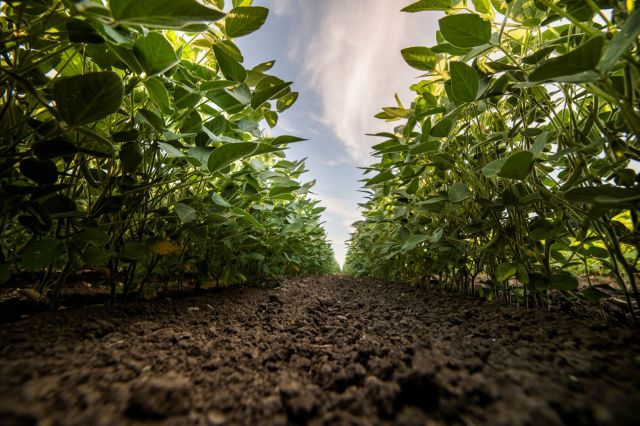Food is essential for humans, and as the world's population continues to grow, we need to come up with innovative ways to produce more food while also decreasing the amount of water, land, and harmful pollutants. Several scientists are doing just that, with new technologies ranging from lab-grown meat to vertical farms.
1. Biochar

Plastic is found everywhere in farming, including mulches, fertilizers, irrigation pipes, and crop storage. A processed farm waste called biochar is being repurposed to reduce the microplastics from farms that end up in our food, oceans, and drinking water.
Biochar is made by superheating waste and biomass with little oxygen. Not only can biochar be used to filter out 92.6% of plastic particles from samples, but it has also been shown to enrich soil and capture carbon pollution.
Read more →
2. Better fertilizer

Fertilizer is essential for meeting the global food demand, but the production of one of its main ingredients, synthetic ammonia, accounts for 2% of planet-warming pollution each year. To create a more planet-friendly fertilizer, scientists are experimenting with a new way to produce ammonia that lessens the environmental impact.
Another negative impact of fertilizer is excess nitrates in runoff from farms, harming our water and soil. Researchers are also combatting that, capturing nitrates before they can contaminate the environment and turning them into reusable ammonia.
Read more →
3. Indoor vertical farming

A new indoor vertical farming facility in Mexico City will create 500 new jobs, produce up to 30 times more output than a traditional outdoor farm, and use 90% less water.
Thanks to their indoor nature, these farms can function year-round rather than being tied to seasonal planting. They also use less water and land — and they can be set up practically anywhere, regardless of weather conditions.
Read more →
4. 3D-printed meat

Livestock accounts for about 14.5% of planet-warming pollution, so scientists have been looking for a solution to provide people with the meat they crave without the adverse effects on the environment. One such solution is lab-grown meat, which could change the food industry completely.
Steakholder Foods uses animal stem cells to grow muscle and fat cells, which become the "ink" that is then 3D-printed into specific cuts of meat meant to be indistinguishable from farm-raised meat.
Read more →
🗣️ What's your biggest motivation in trying to reduce your personal food waste?
🔘 Saving money 💰
🔘 Helping the planet 🌎
🔘 Not being a wasteful person 😇
🔘 I don't think about reducing food waste 🤷
🗳️ Click your choice to see results and speak your mind
5. Algae protein

Another source of plant-based protein could come from blue-green algae, and it would have a meat-like texture that is currently missing from many plant-based meat alternatives. The cyanobacteria does not require much land to grow, and it only needs water, carbon dioxide, and the sun.
Having better meat alternatives could make people more inclined to cut animal meat out of their diet, even if it's just a few days a week, which can be beneficial to our planet and human health.
Read more →
Join our free newsletter for weekly updates on the latest innovations improving our lives and shaping our future, and don't miss this cool list of easy ways to help yourself while helping the planet.









